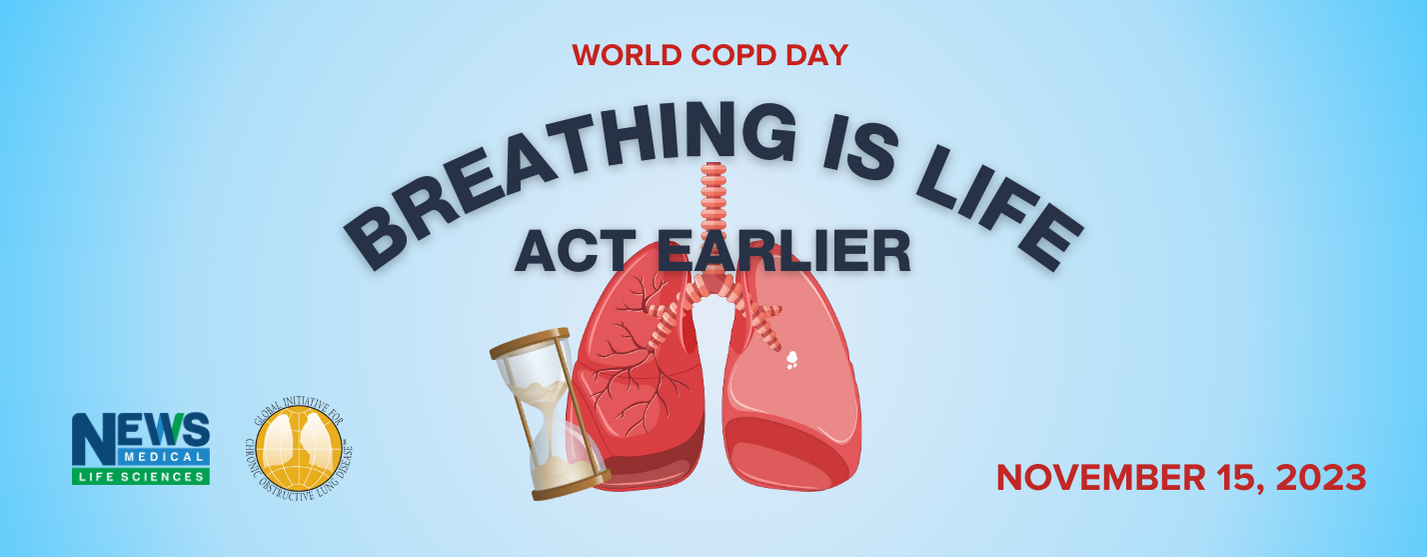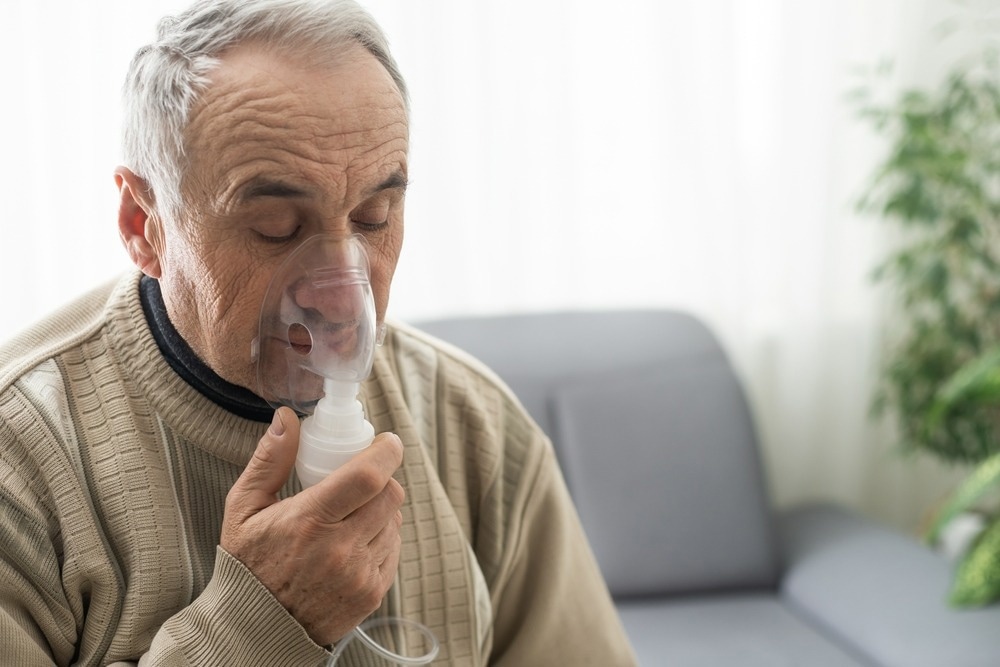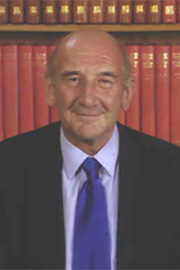I am a Professor of Thoracic Medicine at Imperial College London and was Head of Respiratory Medicine from 1987-2017. I have been involved in research into the underlying mechanisms and the treatment of COPD for many years and have been the most highly cited researcher in COPD research over the last 20 years.
What inspired you to start your work in asthma and COPD, and how have you seen the landscape evolve over the years?
I was training as a specialist in internal medicine and could not obtain a specialist training post, so I needed to do research. I was offered a research post at the Royal Postgraduate Medical School (now part of Imperial College) to study the role of adrenaline in asthma. This led to a thesis on the role of catecholamines and adrenergic receptors in asthma.
I became fascinated by research and was particularly interested in asthma as I had suffered from this as a child. My asthma research focused on underlying inflammatory and neural mechanisms and on understanding how asthma therapies, such as corticosteroids, worked. Later, I used the same approaches to studying the underlying mechanisms and treatment of COPD, which is still poorly understood compared to asthma.
I have always taken a multidisciplinary approach to research, from basic cell and molecular biology and translation to experimental studies and clinical trials.

The landscape has evolved a lot, as when I started, the main focus of research was measuring lung function rather than looking at the underlying cellular mechanisms.
With this year's theme emphasizing the importance of early lung health and early interventions, how critical are early diagnosis and treatment in the trajectory of COPD?
It is important to make the diagnosis of COPD as early as possible, and we know that smoking cessation is much more effective in reducing disease progression the earlier it is applied in the course of the disease. Bronchodilators may also be more effective in earlier diseases. However, we lack drugs that can effectively reduce disease progression, and an important aim of research is to identify new therapeutic targets to develop effective treatments. It is likely that these treatments will be more useful if given as early in the disease as possible.
Your research has provided insights into the cellular and molecular mechanisms of asthma and COPD. Could you briefly share some of the discoveries from your work that have shifted our understanding of these conditions?
My asthma research studied the neural and endocrine regulation of the airways and led to an understanding of how beta-agonists and muscarinic antagonists work as bronchodilators. We also studied the eosinophilic inflammation involved in most patients with asthma, identifying some of the important inflammatory mediators involved and particularly the role of cytokines in orchestrating asthmatic inflammation. We elucidated the molecular mechanisms involved in the anti-inflammatory mechanisms of corticosteroids.
In COPD, we also focused on the underlying inflammatory process and the role of different mediators and cytokines. We discovered why COPD patients respond poorly to corticosteroids, in contrast to asthma. We demonstrated that macrophages, which are enormously increased in COPD lungs, orchestrate inflammation and have a reduced phagocytic function so that they cannot clear bacteria and fungi that enter the lungs, leading to long-term lung colonization.
Your research also focuses on biomarkers for asthma and COPD. How important are these biomarkers in early diagnosis and tailored treatment strategies?
We have measured inflammatory biomarkers in induced sputum in asthma and COPD patients, and this has given great insights into the inflammatory process in the airways and how this is affected by treatments. Bur-induced sputum is uncomfortable and cannot be repeated often, leading us to study biomarkers in the breath.
We explored several biomarkers in breath condensate, but the most useful biomarker is nitric oxide in the breath (FeNO), which we showed to be a very good non-invasive marker of eosinophilic in asthma and is now commonly used to diagnose and follow asthma and to assess the effects of treatments. FeNO is not so useful in COPD as it is caused by smoking but may be an indicator of which COPD patients respond best to inhaled steroids and certain biologics.
Can you elaborate on your current research on accelerated lung aging and cellular senescence as mechanisms of COPD? What implications does this have for prevention and treatment?
We have studied accelerated lung aging in COPD and the role of cellular senescence in driving chronic inflammation and disease progression. We have investigated the molecular pathways involved in cellular senescence and how this may spread in the lung to cause disease progression and beyond the lung to cause comorbidities such as heart disease commonly seen in COPD patients.
Understanding these pathways has identified several new molecular targets that may lead to novel treatments for COPD in the future. One exciting prospect is that senolytic therapies that remove senescent cells may even reverse the disease process, and we are currently investigating which senolytic treatments work best in COPD.
You've been a member of the Scientific Committee of Global Guidelines on Asthma (GINA) and COPD (GOLD). How do these guidelines play a role in shaping global standards for diagnosis and management?
Both GINA and GOLD have been very important in the development of national guidelines to improve the diagnosis and management of asthma and COPD. GOLD has greatly increased awareness of COPD amongst HCPs and rapidly updates recommendations for management based on the latest scientific evidence.
Are there any promising biomarkers on the horizon that could revolutionize COPD care?
It has proved much more difficult to find clinically useful biomarkers in COPD compared to asthma. A very useful biomarker in COPD is the blood eosinophil count, which is easily measured. Inhaled steroids have little clinical benefit in COPD, but they reduce exacerbation overall. It has been found that patients with raised blood eosinophil counts (≥300 cells/ml) benefit from adding ICS, whereas patients with lower levels do not and may be more prone to developing pneumonia. We now recommend the measurement of blood eosinophils before adding an ICS to dual bronchodilators.
We need better biomarkers of COPD to select which patients will respond best to other treatments. This will become more important as more specific treatments are developed and can be used to select the patients that show the best response (personalized medicine approach). Exhaled biomarkers, such as volatile organic compounds, may be useful in identifying different types (endotypes) of COPD that may respond to specific therapies.
What message would you like to impart to patients, caregivers, and the medical community on this World COPD Day?
COPD is an extremely important global disease that has been neglected for far too long. We now have much better treatments, but we need a lot more research to find even better treatments that prevent the disease from worsening and may even reverse it. We also have treatments that target the many comorbid diseases COPD patients suffer. We need to markedly increase public awareness about the importance of COPD and why more research is needed to improve its management.

Image Credit: Andrew Angelov/Shutterstock.com
What is next for you and your work?
We continue to study the aging process in COPD and how cellular senescence spreads via extracellular vesicles to result in disease progression and communities. We are identifying the molecules involved in spreading senescence and looking at new treatments to inhibit the development of senescence and remove senescent cells.
We are also interested in the comorbidities that are usually associated with COPD and particularly disease of cardiovascular aging. We also study the senescence of the immune system in COPD and how aging impairs the function of macrophages, leading to bacterial colonization of the lungs and a failure to resolve chronic inflammation in the lung.
Where can readers find more information?
About Professor Sir Peter Barnes DM, DSc, FRCP, FCCP, FMedSci, FRS
Sir Peter Barnes is Professor of Thoracic Medicine at the National Heart and Lung Institute, and was Head of Respiratory Medicine at Imperial College 1987-2017 and Honorary Consultant Physician at Royal Brompton Hospital, London. He qualified at Cambridge (St Catharine's College 1966-69, first class honours) and Oxford Universities (Worcester College 1969-72). He has published >1500 peer-review papers on asthma, COPD and related topics and has written or edited over 50 books. His research has focused on cellular and molecular mechanisms of asthma and COPD and their treatments He was recently named as in the top 10 most highly cited researchers in the world and has an h-index of >200, with >150,000 citations. He was elected a Fellow of the Royal Society in 2007, the first respiratory researcher for over 150 years, a founding fellow of the Academy of Medical Sciences, and member of the Academy of Europe. He was elected a Master Fellow of the American College of Chest Physicians and Honorary Fellow of the British Pharmacological Society. He is member of the Scientific Committee of the global guidelines on COPD (GOLD). He also serves on the Editorial Board of over 30 journals and is currently Associate Editor of Journal of COPD Foundation and respiratory Editor of Up-to-Date. He has given several prestigious lectures, including the Amberson Lecture at the American Thoracic Society, the Sadoul Lecture at the European Respiratory Society and the Croonian Lecture at the Royal College of Physicians, London. He has received honorary degrees from the Universities of Ferrara (Italy), Athens (Greece), Tampere (Finland), Leuven (Belgium) and Maastricht (Netherlands) and is an Honorary Fellow of St Catharine's College Cambridge. He was President of the ERS 2013/14. He was awarded the Trudeau Medal of the ATS in 2020. He was knighted in the King's Birthday Honours in 2023 for services to respiratory science.